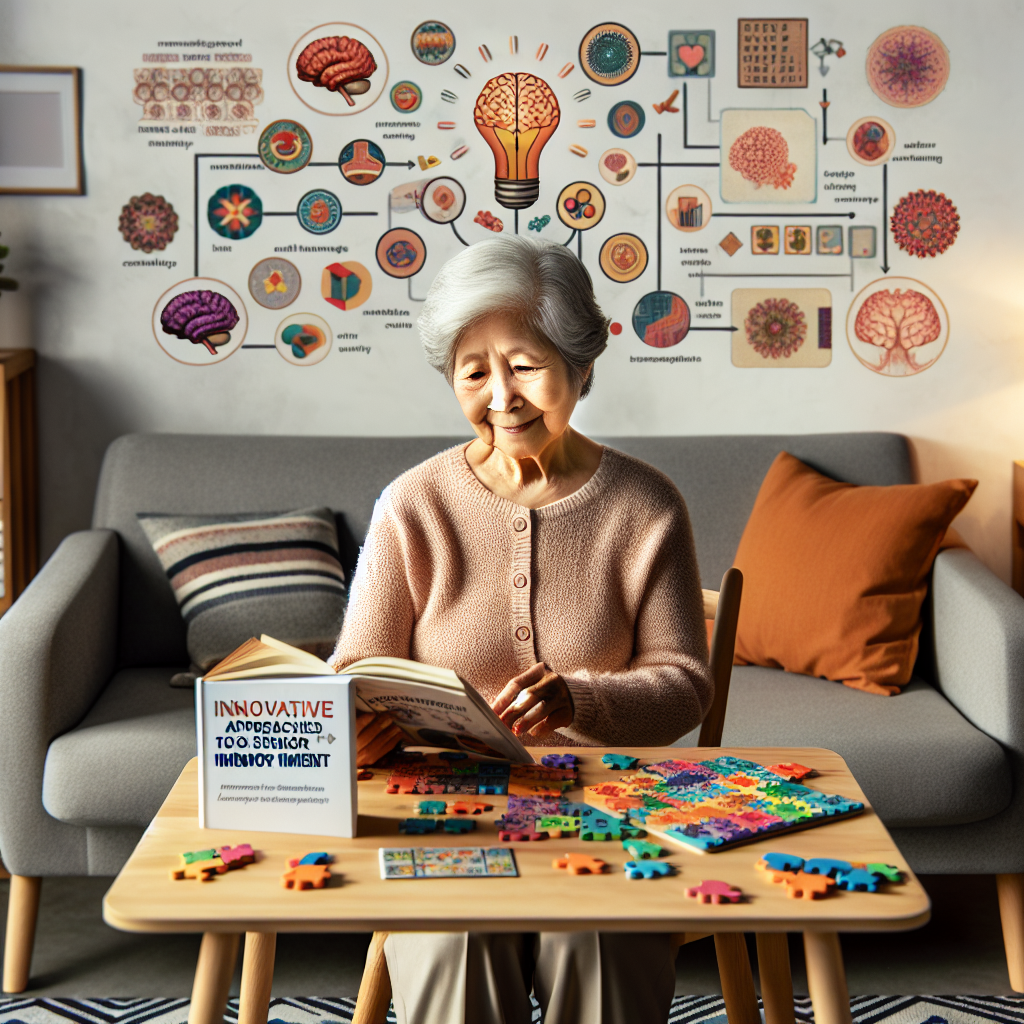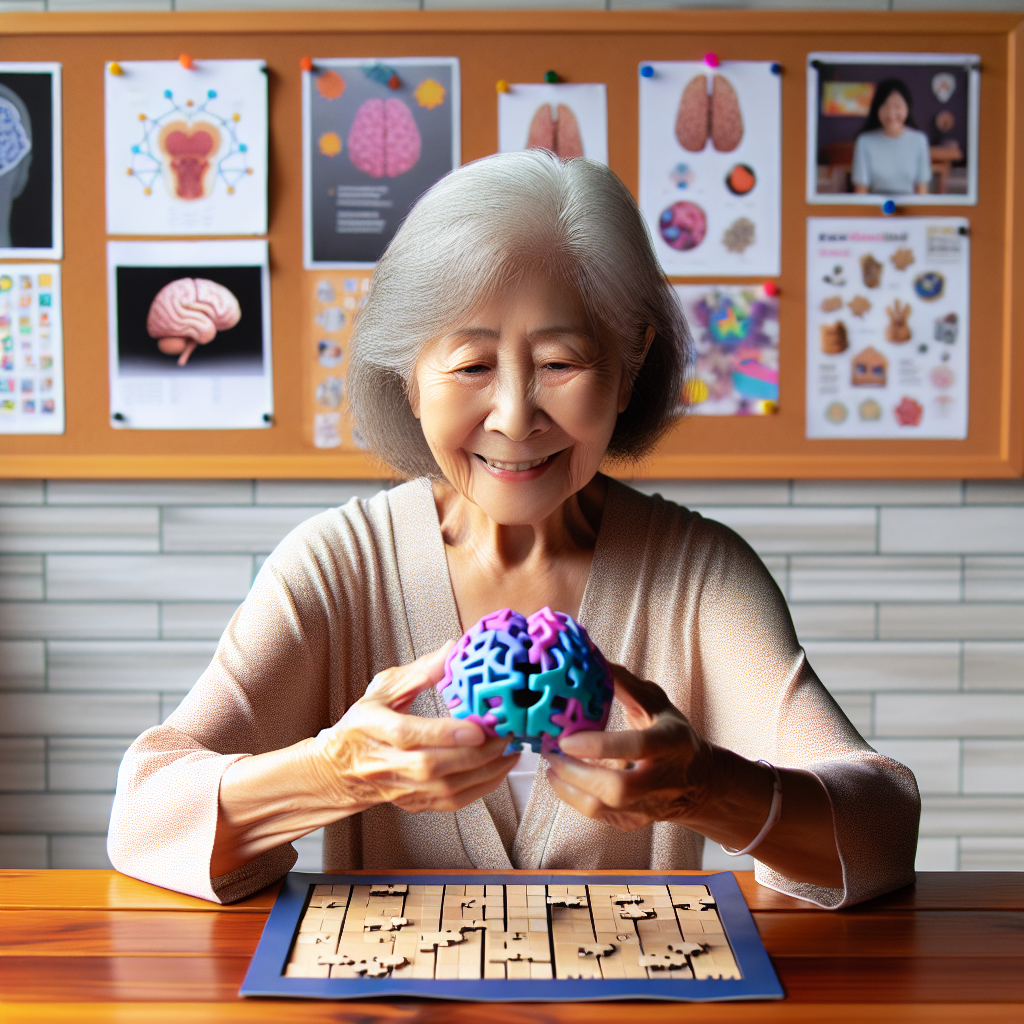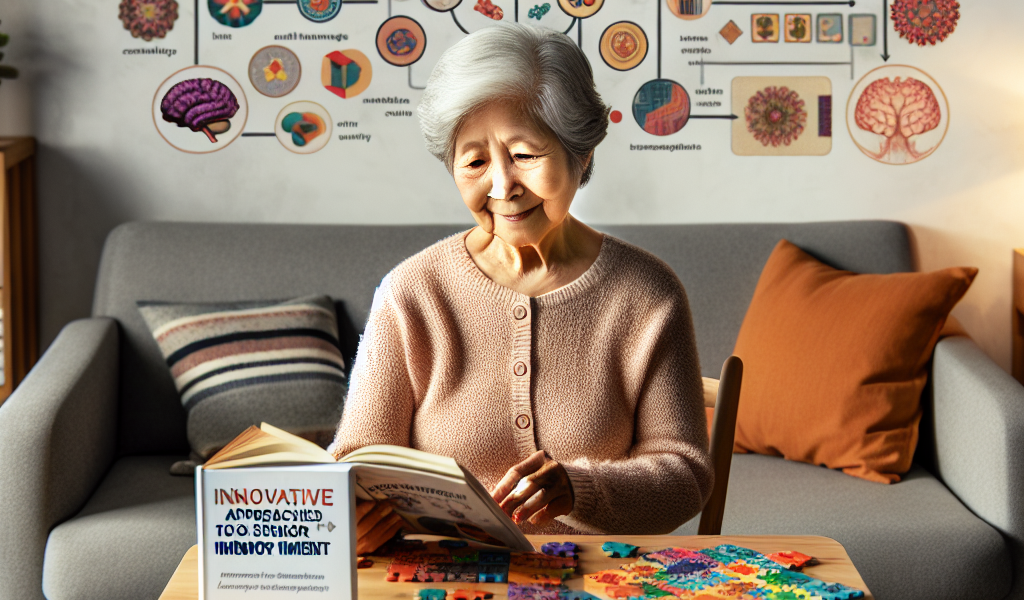Are There Any Memory Techniques Specifically Designed For Elderly Individuals?
Imagine a world where your wisest years are not shadowed by forgetfulness, where each memory is easily retrievable, your recall sharp and your cognition still vigorous. That’s the magic this article sparks, as it explores the topic of memory techniques meticulously crafted for the aging brain. Unravel the mysteries of memory and traverse the imaginative path that reveals memory techniques tailor-made to suit elderly individuals. The mission is finding ways to keep the memories alive and bright in the golden years.

Understanding Memory Changes in the Elderly
With the natural progression of time, your body experiences various changes, including the functioning of your brain. Memory, a crucial aspect of cognitive functioning, is not shielded from the inevitable aging process.
Influence of age on memory
Your memory is like a storage vault, safeguarding every experience, thought, or information you’ve encountered throughout your life. As you age, this vault may take a tad bit more time to retrieve stored information. This type of memory impairment is not necessarily alarming and can be considered characteristic of the normal aging cycle.
Distinguish between age-related memory loss and dementia
It is vital to differentiate between normal age-related memory loss and dementia. Age-related memory loss is often associated with occasional forgetfulness, such as misplacing keys or forgetting an appointment. On the other hand, dementia, including Alzheimer’s disease, yields more profound memory impairment evident through repeated episodes of forgetting essential information, severe confusion, and even changes in personality.
Patterns of memory decline
As you age, the changes in your memory function might not be uniform. You may experience a decline in episodic memory, which involves remembering events and personal experiences. Spatial memory, which guides you on your car drive to the grocery store or informs about the positioning of objects in the surroundings, may also be impacted. However, other memory types, like semantic memory or procedural memory, may remain relatively intact.
Principles of Memory Techniques for the Elderly
Undeniably, suitable memory techniques can significantly lessen the impacts of memory loss and augment cognitive capabilities.
Importance of suitable memory techniques
By engaging in memory-enhancing techniques, you can fortify your brain’s agility and improve recalling abilities. These practices do not just bolster memory but also the overall cognitive functioning, thereby granting you a higher degree of self-reliance and enhanced daily living quality.
Key principles of memory techniques
Memory techniques often leverage the usage of cognition in imaginative, repetitive, and ordered ways, thereby exercising the brain. These methods usually involve focusing your attention, creating mental imagery, or implementing mnemonics. Flexibility in these techniques enables you to adopt what suits you the best.
Factors affecting memory techniques effectiveness
Your commitment and the frequency of practicing these techniques undoubtedly affect their effectiveness. Simultaneously, your overall physical health, nutritional intake, restful sleep, stress level, and even your genetics contribute to how well these techniques will serve you.
Specific Memory Techniques for Elderly Individuals
The world of memory enhancement techniques is extensive and holds much promise.
Visualization techniques
To remember specific pieces of information, visualizing them in a specific scenario can be quite beneficial. Creating a vivid mental tapestry of words, ideas, or objects can ensure that these pieces of information are more firmly embedded in your memory.
Mnemonic devices
Mnemonic devices are another useful technique. These could be in the form of acronyms, rhymes, or phrases that help in remembering information. For instance, to remember the names of your medications, you can create a short song with all their names.
Storytelling strategies
Storytelling is a time-honored method of preserving information. Constructing stories around the information you wish to remember can lead to easier recall as it provides a context and links to various memory aids.

Role of Physical Activity in Boosting Memory
Movement is far more than mere muscle work – it’s a balm for your brain too!
Impact of physical activity on brain health
Physical activity boosts brain function by augmenting the flow of blood, thereby enabling more oxygen and nutrients to reach the brain. Regular exercise also stimulates the production of hormones that encourage the growth of brain cells, strengthening the connections between these cells.
Recommended exercises for elderly
Incorporating gentle exercises such as walking, swimming, or doing yoga can aid in maintaining brain health. Equally beneficial are balance and coordination exercises as these require mental agility and Concentration, stimulating brain activity.
Connection between physical and cognitive health
A healthy body nurtures a healthy brain. There’s a direct link between physical health and cognitive vitality. Therefore, adopting an active lifestyle can significantly retard memory decline, boosting cognition and promoting a sense of wellbeing.
Influence of Diet on Elderly Memory Function
What you eat matters as much to your brain as to your body!
Foods that enhance brain function
Certain nutrients can aid in supporting memory and cognitive function. Foods rich in omega-3 fatty acids, antioxidants, and B-vitamins, like fatty fish, nuts, berries, and green leafy vegetables, are known to boost brain health.
Importance of hydration
Dehydration can lead to a feeling of confusion and difficulty in concentration. Therefore, maintaining an adequate intake of water is critical to cognitive health.
Role of nutritional supplements
While a balanced diet is essential for brain health, nutritional supplements like omega-3 fatty acid capsules, multivitamin tablets, or coenzyme Q10 capsules can complement dietary intake, particularly if there tends to be deficiencies.
Importance of Cognitive Stimulation for Elderly Memory
Keeping your brain active and engaged is vital for its fitness.
Engaging in intellectual activities
Engaging the brain by undertaking intellectually stimulating activities such as puzzles, reading, playing cards, or even learning a new language, can contribute to increased ‘mental fitness.’
Learning new skills
Challenging yourself to learn new skills is excellent for brain health. It could be anything from painting, gardening, cooking a new recipe, or even learning to play a musical instrument. Every new skill discovered keeps your brain on its toes, stimulating new connections and promoting memory.
Socializing and brain health
Connecting with others not just cultivates good feelings but can also stimulate the brain. Animated conversations and interactions can enhance memory retrieval and cognitive function.
Implication of Restful Sleep on Memory Recall for Elderly
A good night’s sleep is a haven for memory.
Sleep quality and its effects on cognitive function
During sleep, the brain forms and consolidates memory, making it easier to recall later. Therefore, a good night’s sleep can significantly enhance memory recall and other cognitive functions.
Sleep disorders common in elderly
Several age-related changes in sleep patterns can affect memory performance. Understanding these and seeking medical advice when needed can greatly improve sleep quality and, in turn, memory function.
Tips for better sleep
Maintaining regular sleep hours, creating a restful environment, avoiding screens before bedtime, and including physical activity during the day can result in better sleep.
Coping with Stress to Improve Memory
Chronic stress can be an enemy of memory.
Impact of stress on memory function
High stress levels can impact memory function as the body’s response to stress can interfere with memory storage and retrieval.
Effective stress management techniques
Practicing relaxation exercises such as yoga, deep breathing, or meditation can mitigate stress levels and have a positive impact on memory.
Role of relaxation and leisure activities
Engaging in enjoyable activities and pursuing hobbies can act as effective stress busters, thereby helping to enhance memory function.
Professional Help and Therapies for Memory Improvement
Don’t shy away from seeking professional guidance when needed.
Cognitive Behavior Therapy (CBT) for memory loss
Cognitive Behavior Therapy can be effective in helping to manage memory problems by changing the way you think and behave, thereby improving memory skills.
Role of occupational therapy
Occupational therapists can assist by imparting strategies and techniques aimed at improving memory and promoting independence.
Memory clinics and services
Memory clinics offer specialized services for supporting individuals facing memory difficulties. These services include diagnostic tests, consultations with professionals, support groups, and various therapies aimed at enhancing memory function.
Future Prospects on Memory Enhancement for Elderly
There’s a great assurance that tomorrow holds a brighter prospect for memory enhancements.
Latest research in gerontology and neurology
Research in gerontology and neurology is incessantly discovering new possibilities that might hold the key to combat memory deterioration and bring a new dawn in the world of memory enhancement for the elderly.
Potential of tech-based memory-enhancement tools
Technological advancements are unveiling innovative memory-enhancement tools, such as apps and devices, that can offer significant support in bolstering the memory of the elderly.
Implications of personalized medicine in memory care
Personalized medicine, tailor-made to your genetic makeup, lifestyle, and environment, is potentially the future of memory care. This approach can provide highly customized care, escalating the effectiveness of memory enhancement tactics.
Remember that the journey of memory enhancement for you, as an elderly individual, embodies much more than combating forgetfulness. It’s a journey towards fostering self-dependence, enhancing mental wellbeing, and most importantly, continuing to make beautiful memories. You have the power, backed by the principles, techniques, and professionals to cherish your memory, today, and tomorrow! Embrace your memory; it’s a treasure trove making you, uniquely you.

